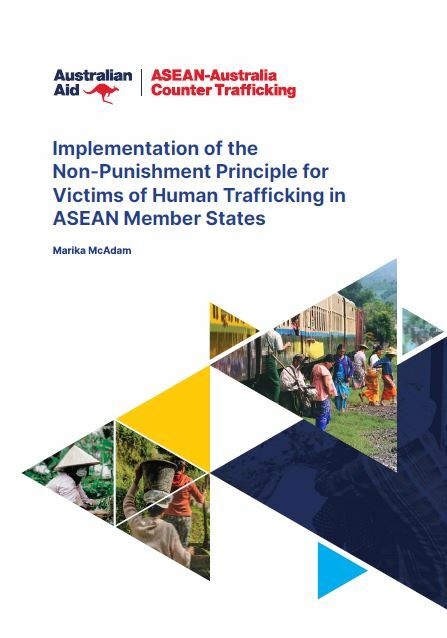
Implementing the Non-Punishment Principle to protect victims of trafficking
The non-punishment principle sets out that victims of trafficking should not be prosecuted or otherwise punished for unlawful acts they commit as a consequence of trafficking. It does not offer blanket immunity, but is a critical tool for victim protection and human rights-based criminal justice response to human trafficking.
The ASEAN Convention Against Trafficking In Persons, Especially Women and Children – signed by all ASEAN Member States – states that victims of trafficking should not be punished for unlawful acts committed because of being trafficked. Yet across the region, victims of trafficking may face punishment for immigration offences, use of fraudulent documents, involvement in prostitution or drug-related activities, or for offences they commit trying to escape their exploitative situation.
A Study supported by ASEAN-ACT and authored by international law expert Dr Marika McAdam examines the the extent to which the non-punishment principle is reflected in laws, policies and practices, and canvasses barriers that have been encountered in protecting victims from punishment.
The Study was officially launched by ASEAN-ACT and supported by ASEAN officials on the 25 April 2022, the recording can be viewed here.
For more information about the Study, please visit: https://www.aseanact.org/resources/non-punishment-study/